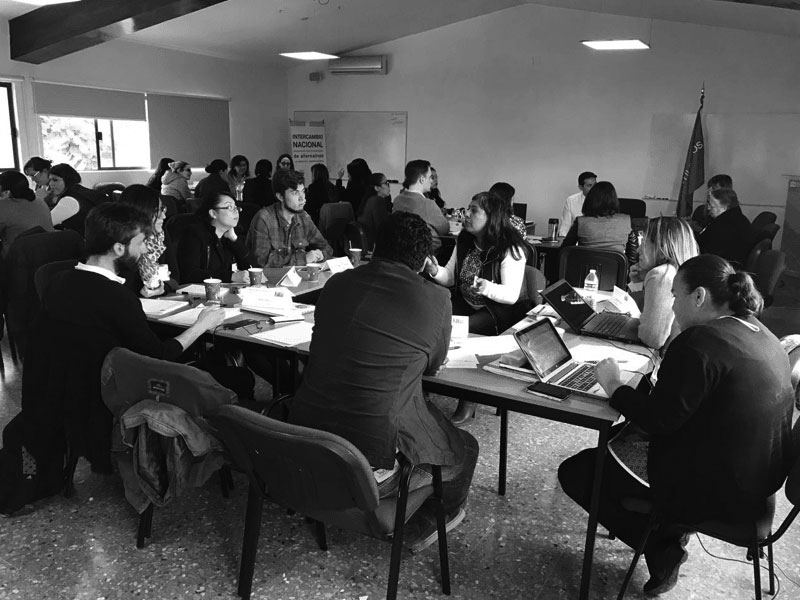Independent Evaluation
IDC commissioned Stuart Thomas of IOD Parc to undertake an independent evaluation. The purpose of the evaluation was to inform a phase of IDC consolidation and transition by focusing on IDC’s experience of generating change. The evaluation used the Outcome Harvesting methodology to identify and assess the key impacts achieved by the IDC between 2014-2017. The evaluation analysed 12 SMART outcomes, formulated by the staff secretariat team.

The evaluation identified a range of themes in IDC’s outcomes, including:
Creation of networks and platforms
Many outcomes reported either using or building a platform or sub-network to raise awareness of issues or as a space to build capacity. The creation of autonomous networks and platforms outside of IDC structure seem to provide a neutral platform for other networks or organisations to join. The form of the network has varied depending on the context and membership bodies. The creation of these platforms has increased the spaces where immigration detention is discussed.
Capacity strengthening of youth with experience of detention
The method of strengthening and providing a platform to people with experience of detention is effective: “IDC (are) pioneering in the migration scene in that they bring the voices of children that are affected by detention in a way that is impossible to ignore” (OHCHR). Capacity strengthening has increased the ability of people, especially youth, with experience of detention to advocate for alternatives to detention.
Building knowledge base of partners
Building the knowledge base of civil society partners has been an essential strategic feature, often a starting point, for IDC activities and change. Building the knowledge base has strengthened civil society with information and capacity to discuss issues of migration detention and alternatives.
The importance of language
Many outcomes referred to introducing and supporting stakeholders with the development of appropriate language and terminology. Rather than a formalised strategy, this appears to be an informal cultural style of IDC work. Introducing language has changed institutional discourse, utilising the language of ‘alternatives’.
Drawing on research
Unsurprisingly, the use of IDC research and the CCAP model was present in the majority of outcomes. However, it is worth highlighting this to stress the important role of IDC research in influencing change.
